Aquarian Space and American Binary plan to bring encrypted internet to Solar System
Thursday, 29 September 2022 11:08 American Binary is proud to announce that the company is working with Aquarian Space to bring post-quantum encrypted Internet to the Moon and greater Solar System.
Post-Quantum Cryptography (PQC) is new encryption that is designed to be unbreakable by a future quantum computer.
The White House-see Presidential Memo dated May 4, 2022-and most of the U.S. intelligence community are advocati
American Binary is proud to announce that the company is working with Aquarian Space to bring post-quantum encrypted Internet to the Moon and greater Solar System.
Post-Quantum Cryptography (PQC) is new encryption that is designed to be unbreakable by a future quantum computer.
The White House-see Presidential Memo dated May 4, 2022-and most of the U.S. intelligence community are advocati Satellite Vu becomes a supporter of the Terra Carta - Sustainable Markets Initiative
Thursday, 29 September 2022 11:08 Satellite Vu, the British Earth Observation company set to provide carbon emissions data across the globe, has become a supporter of HRH King Charles III's Terra Carta - Sustainable Markets Initiative to promote climate action.
As members of the SMI Terra Carta mandate, Satellite Vu will help deploy valuable ESG-aligned data and analytics to provide vital carbon emissions knowledge to orga
Satellite Vu, the British Earth Observation company set to provide carbon emissions data across the globe, has become a supporter of HRH King Charles III's Terra Carta - Sustainable Markets Initiative to promote climate action.
As members of the SMI Terra Carta mandate, Satellite Vu will help deploy valuable ESG-aligned data and analytics to provide vital carbon emissions knowledge to orga Qld Govt and SmartSat CRC invest in new Queensland Earth Observation Hub
Thursday, 29 September 2022 11:08 The Queensland Earth Observation (EO) Hub, a partnership between the Queensland Government and SmartSat Cooperative Research Centre (CRC), was launched on the weekend with the announcement of two new earth observation research projects.
The SmartSat CRC is spearheading the development of Australia's space industry by bringing industry, universities, and research together to support a thriv
The Queensland Earth Observation (EO) Hub, a partnership between the Queensland Government and SmartSat Cooperative Research Centre (CRC), was launched on the weekend with the announcement of two new earth observation research projects.
The SmartSat CRC is spearheading the development of Australia's space industry by bringing industry, universities, and research together to support a thriv Satellogic joins GREEN+ Jurisdictional Program to monitor subnational protected areas
Thursday, 29 September 2022 11:08 Satellogic has announced a contract to monitor all subnational protected areas on the planet through the new GREEN+ Jurisdictional Programme. The provision of reliable and consistent high-quality satellite data will be governed by the CC35 Capital Cities Secretariat, the Global Footprint Network and The Energy Coalition, among other respected stakeholders committed to conserving the Earth's "las
Satellogic has announced a contract to monitor all subnational protected areas on the planet through the new GREEN+ Jurisdictional Programme. The provision of reliable and consistent high-quality satellite data will be governed by the CC35 Capital Cities Secretariat, the Global Footprint Network and The Energy Coalition, among other respected stakeholders committed to conserving the Earth's "las Webb and Hubble capture detailed views of DART impact
Thursday, 29 September 2022 10:49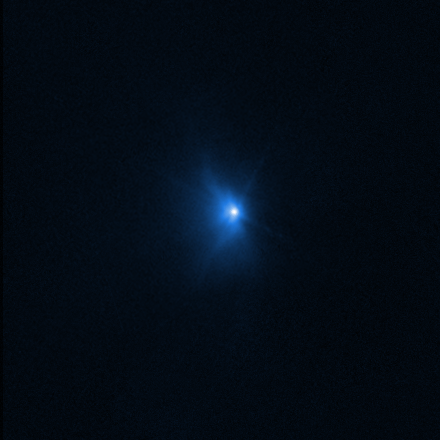
Two of the great space observatories, the NASA/ESA/CSA James Webb Space Telescope and the NASA/ESA Hubble Space Telescope, have captured views of a unique experiment to smash a spacecraft into a small asteroid. Observations of NASA’s Double Asteroid Redirection Test (DART) impact mark the first time that Webb and Hubble were used to simultaneously observe the same celestial target.
NASA and Astra modify TROPICS launch contract
Thursday, 29 September 2022 10:44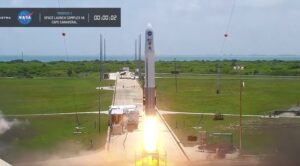
NASA and Astra Space have revised a launch contract originally awarded for the launch of a cubesat constellation after Astra retired the launch vehicle that would have launched those spacecraft.
House committee questions FCC orbital debris rule
Thursday, 29 September 2022 09:24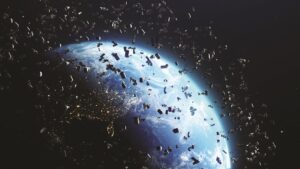
Ahead of a Federal Communications Commission vote on a proposal to set a five-year deadline for deorbiting low Earth orbit satellites, leaders of the House Science Committee are questioning the FCC’s authority to do so.
ESA Impact Q3 is now online!
Thursday, 29 September 2022 07:35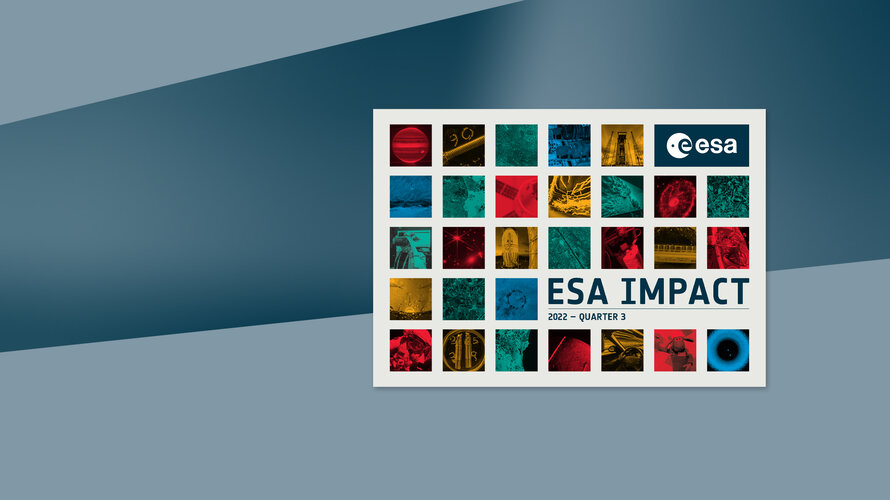
ESA Impact Q3 is now online!
Welcome to this edition of ESA Impact, an interactive publication covering stories and images from the third quarter of 2022.
Guetlein: improved space domain awareness essential for national security
Wednesday, 28 September 2022 23:05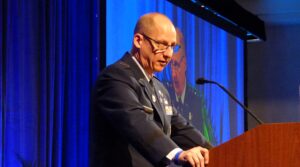
With space essential to military operations, better understanding of what objects are in orbit and the threats they may pose is “foundational” for space security, a Space Force general said.
The post Guetlein: improved space domain awareness essential for national security appeared first on SpaceNews.
Shift to remote work draws mixed reactions
Wednesday, 28 September 2022 22:45
Some space company leaders are embracing the trend toward remote work. Others caution against it. In any case, the pandemic has changed the calculus for current and prospective employees.
The post Shift to remote work draws mixed reactions appeared first on SpaceNews.
Lamborn: ‘Merit on both sides’ of debate over Space National Guard
Wednesday, 28 September 2022 22:12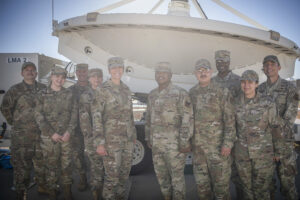
Rep. Doug Lamborn (R-Colo.), a key congressional proponent of establishing a Space National Guard, said he would consider an alternative proposal endorsed by Space Force leaders and by the Biden administration.
Lynk Global to deploy experimental 5G payload in December
Wednesday, 28 September 2022 18:12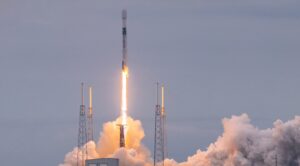
Lynk Global said Sept. 28 it will test the ability to send a 5G signal from a satellite launching in December to standard mobile devices, after getting funding for the demonstration from an undisclosed partner.
NRO signs agreements with six commercial providers of space-based RF data
Wednesday, 28 September 2022 18:10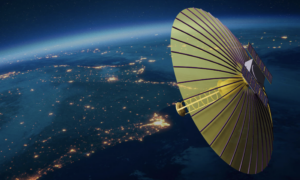
The NRO awarded study contracts to commercial RF providers Aurora Insight, HawkEye 360, Kleos Space, PredaSAR, Spire Global and Umbra Lab.
The post NRO signs agreements with six commercial providers of space-based RF data appeared first on SpaceNews.
Scientists depict Dragonfly landing site on Saturn moon Titan
Wednesday, 28 September 2022 16:40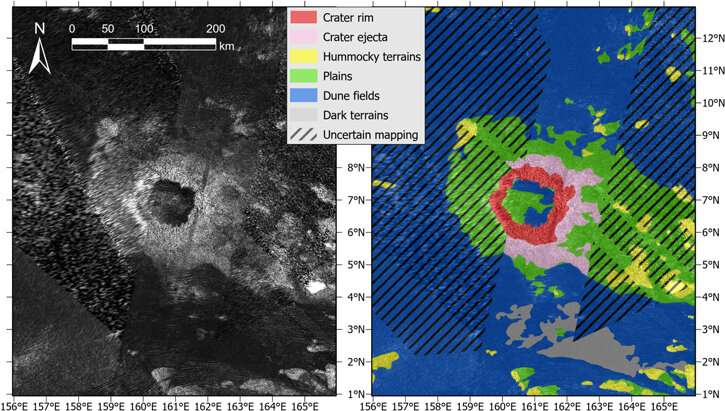
When NASA's 990-pound Dragonfly rotorcraft reaches the Selk crater region—the mission's target touchdown spot—on Saturn's moon Titan in 2034, Cornell's Léa Bonnefoy will have helped to make it a smooth landing.
Bonnefoy and her colleagues assisted the future arrival by characterizing the equatorial, hummocky, knoll-like landscape by combining and analyzing all of the radar images of the area acquired by the Cassini spacecraft during its historic 13 year exploration of the Saturn system. They used radar reflectivity and angled shadows to determine the properties of the surface.
Effectively, it's a scene of sand dunes and broken-up icy ground.
The research, "Composition, Roughness, and Topography from Radar Backscatter at Selk Crater, the Dragonfly Landing Site," was published Aug.
Cristoforetti becomes first European woman to command ISS
Wednesday, 28 September 2022 15:46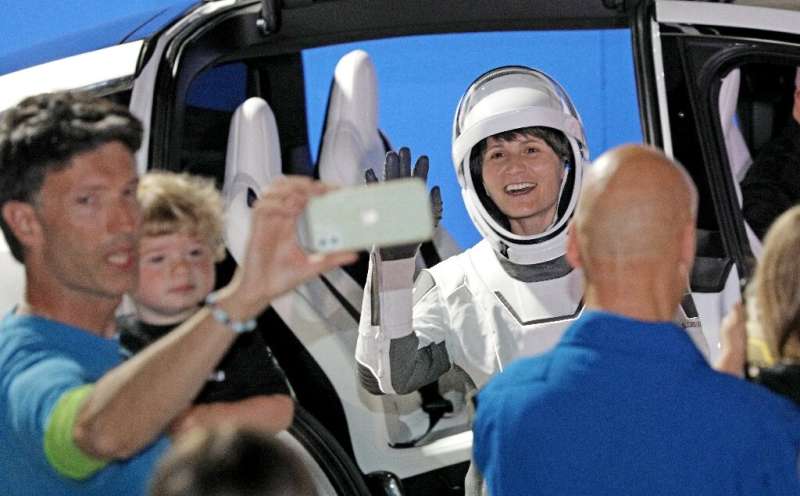
Italy's Samantha Cristoforetti on Wednesday became the first European woman to take over command of the International Space Station during a ceremony broadcast live from space.
The outgoing commander, Russian cosmonaut Oleg Artemyev, used the occasion to seemingly make a rare space-bound reference to the war in Ukraine, saying that "despite the storms on Earth, our international cooperation continues".
During a relaxed ceremony, Artemyev handed Cristoforetti a golden key, symbolising that she is the new commander of the space station until she returns to Earth on October 10.
Cristoforetti, a 45-year-old European Space Agency astronaut and former Italian air force pilot, arrived for her second tour on the ISS in April.
She holds the record for the longest stay in space by a woman after spending 199 days in orbit in 2014 and 2015.

